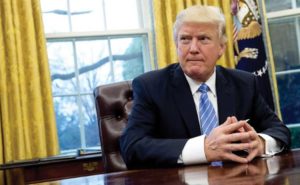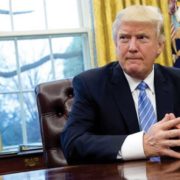
New proposal could affect 24 million immigrants, including those previously eligible for green cards
LAST week on Wednesday, October 10, the Department of Homeland Security (DHS) released its proposed changes to the public charge regulations.
The proposal seeks to expand what will be scrutinized on the “public charge” test, which is a measure used to identify those who depend on certain public assistance programs, and a person deemed a public charge via this test may be denied a green card or visa.
According to the proposals which have been posted to the Federal Register, the “DHS seeks to better ensure that [undocumented immigrants] subject to the public charge inadmissibility ground are self-sufficient, i.e., do not depend on public resources to meet their needs, but rather rely on their own capabilities as well as the resources of family members, sponsors and private organizations.”
Unsurprisingly, many lawmakers and immigrant rights organizations condemned the changes as another attempt by the Trump administration to deter undocumented immigrants from the possibility of citizenship.
The test previously did not include health, nutrition and housing programs like Medicaid and Section 8, but the proposed changes seek to include such public assistance programs.
The proposal also identifies a likely public charge as someone who has an income below 125 percent of the federal poverty level, which as of 2018, is $25,975 for a family of three.
That means that an individual making less than $15,000 a year, or a family of four with a total income less than $31,000, would be unfavorably weighted and could be denied a visa or green card.
“This is another attack on immigrant families by the Trump administration,” U.S. Rep. Judy Chu (D-CA27) said at a press conference on Monday, Oct. 15 at Asian Americans Advancing Justice – Los Angeles. “What’s worse is that the proposed changes set up an elitist system [and] essentially puts a price tag on staying in this country. An immigrant’s worth should not be measured by how much they make — that has never been an American value.”
Nearly 40 percent of green card holders each year are of Asian and Pacific Island (API) descent, and large swaths of undocumented APIs rely on Medi-Cal, according to Penny Chen, member and community service manager at Asian Pacific Health Care Ventures.
Chen said that 62 percent of her organization’s Medi-Cal patients are API patients, and “many of them are scared and confused because of the proposed public charge rule,” and that the new changes have discouraged patients — even those with green cards — from applying for Medi-Cal.
Other programs that could affect a person’s public charge test include Supplemental Nutrition Assistance Program (SNAP) and Temporary Assistance for Needy Families (TANF). Overall, the changes could affect an estimated 24 million people, including 9 million children, according to the Fiscal Policy Institute.
Currently, the proposal is open for public comments and the proposed changes are not in effect. Immigrant families are still encouraged to apply for and utilize public benefits while the proposal pends authorization.
“We will not stand for this xenophobic attack on our communities. This is the time to take action and prevent the proposed public charge rules from taking effect,” Reshma Shamasunder, vice president of program strategy at Advancing Justice – LA, said on Monday, urging the public to call their representatives or submit a comment to the proposal.
The public has until Dec. 10 to submit comments to the proposal. After that, the DHS will review the comments and publish the final order, after which the changes will be valid. (Klarize Medenilla/AJPress)






